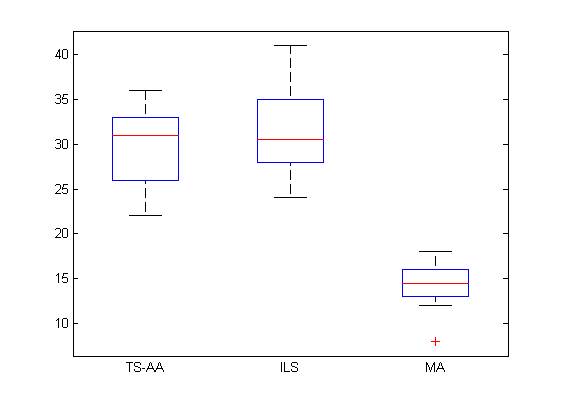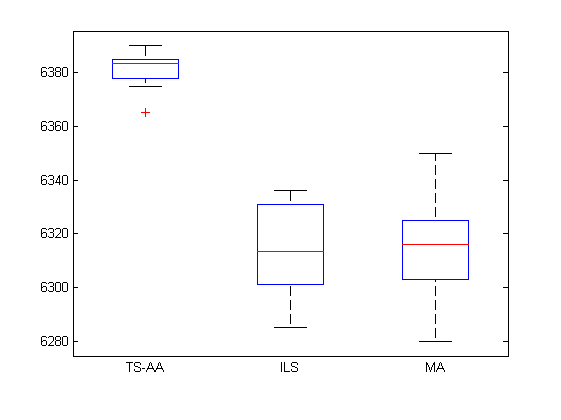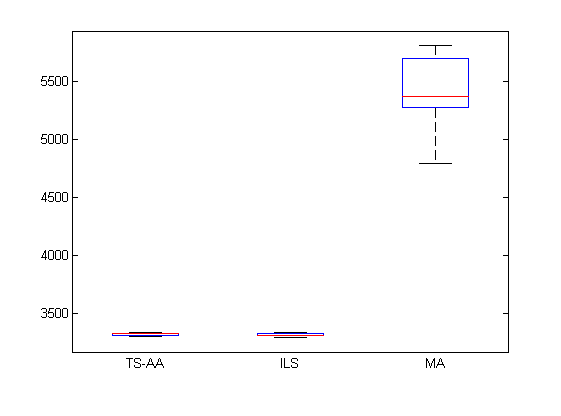- The paper introduces HyFlex, a modular framework that decouples high-level algorithm strategies from domain-specific heuristics for cross-domain search.
- Its architecture separates ProblemDomain and HyperHeuristic components, allowing flexible integration and experimentation across various combinatorial optimization problems.
- Experimental evaluations reveal varied adaptive search performances across domains, underscoring the need for dynamically tuned algorithms.
HyFlex: A Benchmark Framework for Cross-domain Heuristic Search
The paper "HyFlex: A Benchmark Framework for Cross-domain Heuristic Search" (arXiv ID: (1107.5462)) presents a comprehensive software framework designed to facilitate the development of heuristic search algorithms across different combinatorial optimization problems. HyFlex serves as a modular and flexible platform for researchers to develop self-configuring search methodologies without the need to deeply understand each individual problem domain. This capability is crucial for fostering innovation in heuristic search techniques, particularly in hyper-heuristics, adaptive memetic algorithms, and other adaptive strategies.
Framework Architecture and Features
HyFlex is architected around a Java-based software interface that separates the general-purpose algorithmic components from problem-specific components. The primary aim of this modularity, as illustrated in Figure 1, is to allow researchers to focus on the high-level design of search strategies while abstracting away domain-specific complexities.

Figure 1: Modularity of heuristic search algorithms. Separation between the problem-specific and the general-purpose parts, both of which are reusable and interchangeable through the HyFlex interface.
The framework includes two core classes: ProblemDomain, which encapsulates solution representation, fitness evaluation, instance data, and problem-specific heuristics; and HyperHeuristic, which provides the infrastructure for implementing various general-purpose search strategies. HyFlex accommodates multiple problem domains, including MAX-SAT, 1D bin packing, permutation flow shop, and personnel scheduling, each implemented with its own set of heuristics as demonstrated in Figures 3 and 4.

Figure 2: An example of the types of swap made by h6

Figure 3: An example of the types of swap made by h7
Implementation Examples
The paper thoroughly describes the implementation of three high-level search strategies—an iterative hyper-heuristic, iterated local search, and a multi-meme memetic algorithm—with detailed pseudocode exemplifying their practical implementation within the HyFlex framework. These examples illustrate how various heuristic combinations can be deployed to solve problems in diverse domains.
The ease with which these algorithms can be run underscores HyFlex’s utility in streamlining the research and development process. For instance, executing a hyper-heuristic merely involves setting up the problem domain, deploying solutions via heuristic operators, and utilizing the provided interface methods to assess performance—a simplicity exemplified in the provided Algorithm section.
Experimental Evaluation
The experimental results presented reveal HyFlex’s capability to generate insights across domains. Figures 5 and 6 display the distribution of objective function values for selected instances, illustrating the variability in algorithm performance across different problems.


Figure 4: Distribution of objective function values for the MAX-SAT instance 1: {contest02-Mat26.sat05-457.reshuffled-07}


Figure 5: Distribution of objective function values for the permutation flow shop instance 1: {100x20/1}
These visuals demonstrate distinct performance traces for each algorithm, indicating that no single approach excels across all domains—a finding supported by the Borda count analysis. Such disparity emphasizes the need for adaptive strategies capable of dynamically tuning their approach based on the problem characteristics.
Implications and Future Work
HyFlex establishes a standardized benchmark for evaluating cross-domain heuristic search methodologies, promoting consistency in performance evaluation and methodological comparison. It provides a robust platform for experimentation and innovation in adaptive search strategies. The paper suggests future enhancements to include more problem domains, instances, and dynamic problems, along with improved interfaces for feedback-driven adaptive control.
The implications of HyFlex are significant: it serves as a catalyst for advancing heuristic search methodologies by providing researchers the tools to innovate without being encumbered by domain-specific implementation details. This modular, cross-domain capability potentially accelerates the development of more generalized, efficient algorithms.
Conclusion
HyFlex presents a pivotal tool for the heuristic search community, offering flexibility, modularity, and cross-domain applicability that fosters novel algorithmic designs. Its impact is evident in the research interest it has garnered, as reflected by its widespread adoption and integration into international competitions. As HyFlex continues to evolve, it promises to be instrumental in unifying different approaches under a single adaptive framework, thus advancing the field of heuristic search methodologies.







